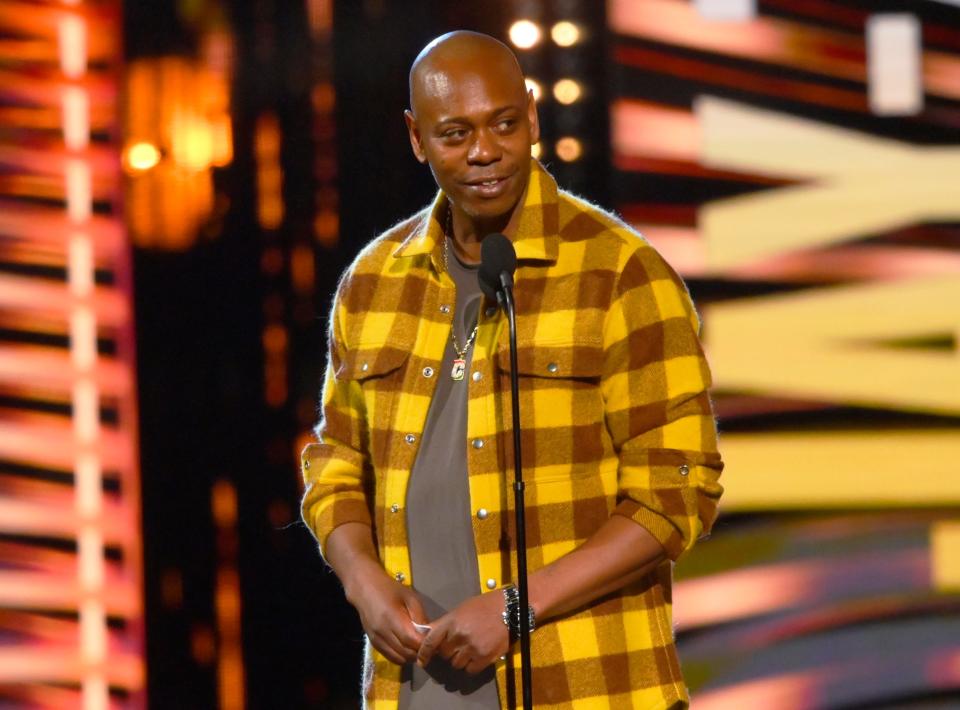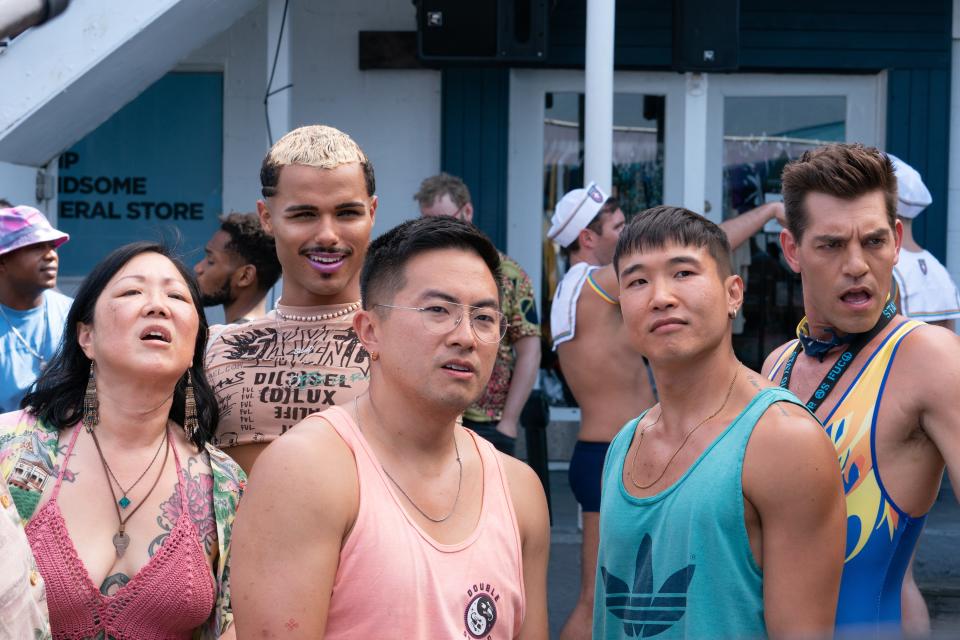Can America take a joke? Yes. Dave Chappelle, Chris Rock incidents are part of a continuum, experts say
There have always been edgy comedians. But now it’s comedy itself that seems – literally – dangerous.
Chris Rock was belted at the Oscars by Will Smith after a joke at the expense of Smith’s wife. Then lastweek, Dave Chappelle was tackled onstage during his "Netflix is a Joke" show at the Hollywood Bowl.
Such violence seems part of our living-on-tenterhooks times. Politics has never been more combustible. Pandemic-bred confrontations surface in stores and on planes. Social transgressions increasingly are met with cancellation.
While it may seem like the end of times for cultural expression, many voices say, not so fast.
Comedians, social commentators and scholars tell USA TODAY that it's in the nation's DNA to foster freedom of expression despite the risks. Rather, many cite social media and a 24/7 news cycle as the reasonrelatively rare incidents suddenly mushroom into apocalyptic warnings that don't paint a true picture of what remains a healthy give and take.

“It’s the mechanics of delivery,” says Kliph Nesteroff, a former standup comedian turned historian and author of “The Comedians: Drunks, Thieves, Scoundrels and the History of American Comedy.”
Is social media to blame for attacks on Dave Chappelle, Chris Rock?
“Social media has created this illusion of intensity,” he says. “You consistently hear in the past several years people saying, ‘I’ve never seen it this bad.’ Imagine if we had Twitter in 1943? We would be scrolling all day, reinforcing all the bad things happening, the same headlines over and over again.”
Back then, people would read the newspaper and toss it.
“They wouldn’t continue to scroll, they wouldn’t go back to the newspaper and read the exact same headlines again,” he says. “Social media is the variable that makes our perception different. It intensifies things that previously would not have been so intensified.”
But make no mistake, the danger has always been there. Nesterhoff says that while doing standup comedy in the ‘90s, he was punched in the head twice by irate fans.
But he's in illustrious company when it comes to visceral reactions to jokes.
In the '50s, Steve Allen, then the largely inoffensive host of "The Tonight Show," received daily threatening letters from an offended viewer for a full year. And a decade later, Lenny Bruce routinely angered people with his acerbic routines, and he was arrested numerous times for using sexually explicit language in his standup. The Smothers Brothers’ political satire so angered network execs that they eventually lost their show.
In 1973, Joan Rivers had to cancel a show in Miami Beach due to bomb threats from someone threatening to kill her, apparently offended by a Polish joke she told in her act.
And George Carlin made people so mad by talking about “seven dirty words you can’t say on TV” that it produced a 1978 Supreme Court ruling upholding government power to regulate “indecent speech” on public airways.
In the late 1980s, “controversial” comedians Sam Kinison and Andrew Dice Clay were subjected to picket lines and protests, and occasional brawls between fans and protesters, at multiple gigs during their separate comedy tours.
Is comedy more offensive now?
So there’s nothing new about “offensive” comedy. What is new is how the offended are so easily able to register their fury so quickly and all at once, says Robert Thompson, a professor of popular culture at Syracuse University.
“There are simply so many more venues for so many more people to weigh in on and express their offense,” Thompson says. In the old days, an “offensive” comic might not get hired or might be fired from a network show.
“Now, there is a sense of, you’re not only getting feedback from a small number of gatekeepers, you’re getting feedback coming in from virtually everyone. Social media has allowed everyone to weigh in. The big change is the dynamic of response.”

Chappelle knows all about that. Over the past months, he has angered the trans community with comments they have called out as hurtful and dangerous.
Specifically, in his Netflix special last fall, "The Closer," he said, “Gender is a fact. Every human being in this room, every human being on Earth, had to pass through the legs of a woman to be on Earth.” He added that “trans women’s” genitalia are “not quite what it is."
Those comments eventually led to a largely peaceful walkout and protest on the part of some Netflix employees. Chappelle offered to meet with trans representatives, but on his terms. No meeting happened. Chappelle added fuel to that bonfire moments after being attacked at the Hollywood Bowl by quipping, "It was a trans man.” (While little is still known about his attacker, 23-year-old Isaiah Lee appears to be suffering from mental health issues.)
Did Dave Chapelle cross a line?
For LGBTQ community educator and family therapist Moe A. Brown, Chappelle's jokes crossed a line. Chappelle could make such comments if he were either part of the offended community or had done “a lot of the cultural humility work to understand” what he's talking about, Brown says.
“Historically, people have always made fun of each other, but we’re experiencing a moment where people are standing up in the larger culture outside of comedy and saying, ‘we don’t want to be oppressed, we don’t want to be marginalized, we don’t want you to talk about us.’ We want to be seen. We want to be heard.”

The growing success of LGBTQ+ comedians, such as Hannah Gadsby, Gina Yashere and Bowen Yang, suggests that a broader range of voices telling their own stories is adding to the cultural conversation in a way that didn’t exist decades ago, says Jake Kroeger, founder of The Comedy Bureau, a Los Angeles-based organization that helps comedians navigate the industry.
“Today, you have everyone from undocumented people to trans people doing comedy, so you’re hearing their side of the story, their perspective, all of which confirms their humanity,” he says.
But, Kroeger adds, comedy was never meant to be safe. The art form is by its very nature bound to provoke. And that’s OK.
“There will be people who are always on board for a touchy joke, and others who aren’t,” he says. “Comedians are allowed to joke about whatever they want, and people can feel about that however they want. And neither one cancels out the other.”
Comedians certainly are wired to keep pushing the envelope. On Thursday night, at an unannounced appearance at a Los Angeles comedy club, Chappelle wise-cracked to Rock, who joined him on stage: “At least you got smacked by someone of repute! I got smacked by a homeless guy with leaves in his hair.”
What's important to remember, Kroeger says, is that these jokes can be told at all.
"In Russia right now, if you even call their war a war, you'll get arrested," he says, referring to President Vladimir Putin's decree after invading Ukraine. "So Dave (Chappelle) is allowed to make any joke he wants because he's a comedian and we live in America. This isn't binary, it isn't right or wrong. He's allowed to say things. You're allowed to be upset by them. That's how it works."
But the combustible cultural moment we are living in – one roiled by political discord and pandemic restrictions – certainly is testing that joke-and-let-joke philosophy, says Grace Gipson, an assistant professor in the department of African American studies at Virginia Commonwealth University.
“I feel like in his day, Richard Pryor took things to an extreme maybe even greater than what we see today, but no one was bum-rushing the stage,” Gipson says. “Today, it seems like people are free to show their anger beyond heckling.”
Gipson has tickets to a Chris Rock show this fall. She says she is a bit concerned about something happening to the comedian at the show, and she's banking on him offending somebody.
"Comedians aren't going to filter their entertainment," she says. "If you don't like it, don't participate, don't give them your money."
That said, Gipson feels certain the pendulum will swing back from today's fear-based moment.
"We’ll get back to a place where people aren’t in the red zone and comedians won’t have to fear for their lives going on stage," she says. "I can't tell you when, but we'll get there."
Comedian Kevin Hart expressed as much on "Jimmy Kimmel Live!" on Thursday night.
“I think that the world that we’re in right now, there’s a lot of lines that have gotten blurred, and sometimes you got to take a couple steps backwards to take some steps forwards,” Hart told guest host Mike Birbiglia.
“Ultimately, these moments of unprofessionalism should not break professionals, they shouldn’t shape or mold the world that we’re now being seen or viewed in,” he said, segueing into a plea: “It’s time to get back to a place of respect for your live entertainer.”
Contributing: Hannah Yasharoff, USA TODAY
This article originally appeared on USA TODAY: Dave Chapelle, Will Smith attacks don't mean comedy is over
